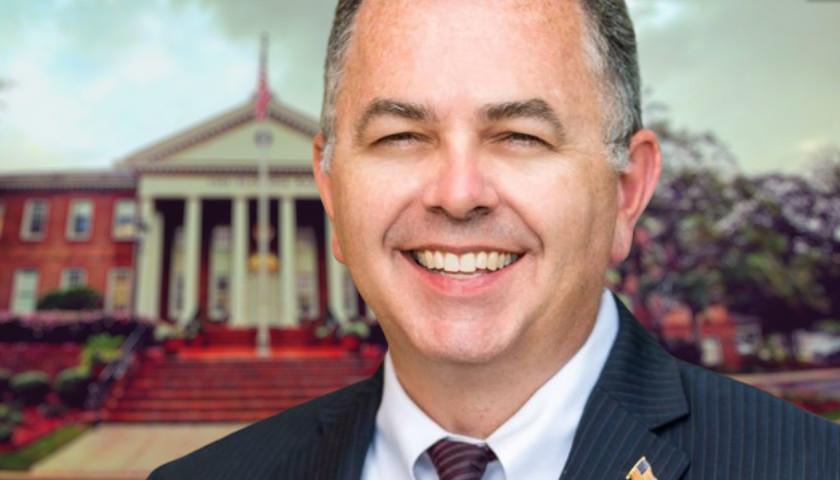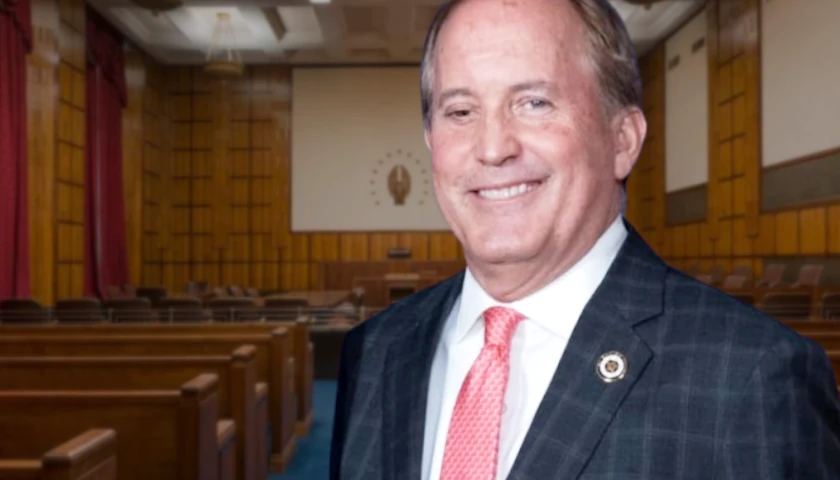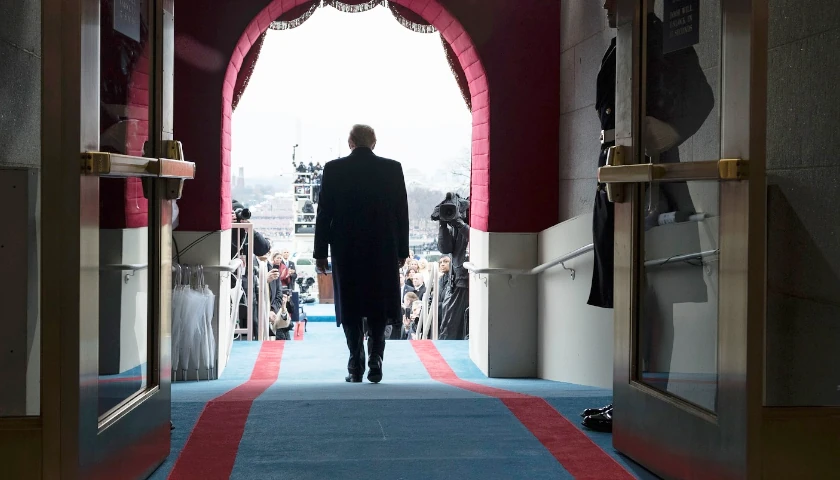Florida attorney Chris Crowley filed a Cross-Answer/Reply Brief with the Florida Supreme Court earlier this month in his appeal challenging the suspension of his law license for 60 days.
A Referee for the Florida Bar disciplined him for engaging in political speech while he campaigned for the state attorney’s office in Florida’s 20th Judicial Circuit due to referring to his opponent as “corrupt” and “swampy” and for observing that she had “close family ties to the [Palestine Liberation Organization (PLO)] terrorist organization.”
Crowley’s opponent, Amira D. Fox, had an uncle who served on the executive committee for the PLO, her father said in an autobiography titled “From Palestine to America.” An investigation found that “Fox campaigned during working hours,” and she admitted, “that she was required to repay $1,458.00 to the State after receiving pay for time exceeding her allowed leave after human resources raised the issue of her overpayment.”
Representing himself in the brief, Crowley (pictured above) argued that the rule he is accused of violating R. Regul. Fl. Bar 4-8.2(a), which is “facially unconstitutional under the First Amendment because it discriminates based on content involving disfavored subjects about specific categories of people.”
The rule states, “A lawyer shall not make a statement that the lawyer knows to be false or with reckless disregard as to its truth or falsity concerning the qualifications or integrity of a judge, mediator, arbitrator, adjudicatory officer, public legal officer, juror or member of the venire, or candidate for election or appointment to judicial or legal office.”
Crowley said the First Amendment applies to everyone, including attorneys. He listed several Supreme Court cases where the nation’s highest court held that individuals in various professions still maintained their right to free speech.
In Kennedy v. Bremerton Sch. Dist., the court held that public high school coach Joe Kennedy had a right to kneel on the football field and pray after a game, even though “he did not have a ‘right’ to be a coach and did not face a criminal proceeding.”
In 303 Creative LLC v. Elenis, the Supreme Court ruled that a graphic design company could decline to design websites for same-sex weddings due to the First Amendment’s protection even though “the company did not have a ‘right’ to make website designs and faced an administrative hearing rather than a criminal proceeding.”
In National Institute of Family and Life Advocates v. Becerra, the Supreme Court held that it was a violation of the First Amendment to require pro-life pregnancy centers to inform women about abortion clinics. It didn’t matter that “the clinics were within the confines of the professional relationship.” The Supreme Court stated that “regulating the content of professionals’ speech poses the inherent risk that the Government seeks not to advance a legitimate regulatory goal, but to suppress unpopular ideas or information.”
The Court acknowledged that it “has not recognized ‘professional speech’ as a separate category of speech. Speech is not unprotected merely because it is uttered by ‘professionals.’” Regarding attorneys, the Court observed that “this Court has applied strict scrutiny to content-based laws that regulate the noncommercial speech of lawyers.”
Crowley said the Florida Bar relied on Williams-Yulee v. Florida Bar, where the Supreme Court held that states can restrict individuals running for judge from soliciting donations. However, the Court also stated that “speech about public issues and the qualifications of candidates for elected office commands the highest level of First Amendment protection.”
He distinguished many cases that the Florida Bar cited by pointing out that they involved other types of speech, such as “impugning the judiciary in a legal proceeding. In contrast, out-of-court, partisan campaign speech has not been previously regulated by the imposition of a disciplinary sanction.”
Crowley emphasized, “Neither the Bar nor Respondent has found published or unpublished record of imposing discipline for violating Rule 4-8.2(a) in a legal officer election.”
Additionally, he said his statements were opinion, not facts, so Rule 4-8.2(a) didn’t apply.
He argued that the disciplinary proceedings violated the state’s anti-SLAPP law, which prohibits using the courts to suppress free speech. SLAPP stands for Strategic Lawsuits Against Public Participation. “The Bar does not argue that the Legislature has enacted any provisions excluding disciplinary proceedings,” he said.
Crowley also mentioned that he’d objected numerous times to the Referee being appointed to his case since the Referee shared the same campaign treasurer as Fox during 2018, casting doubt on his ability to be fair.
He concluded by by asking the court to find the Florida Bar’s rule unconstitutional. Next, oral arguments will be held in front of the Florida Supreme Court.
– – –
Rachel Alexander is a reporter at The Arizona Sun Times and The Star News Network. Follow Rachel on Twitter / X. Email tips to [email protected].
Photo “Chris Crowley” by Chris Crowley, Conservative Republican. Background Photo “Florida Bar Building” by The Florida Bar.




